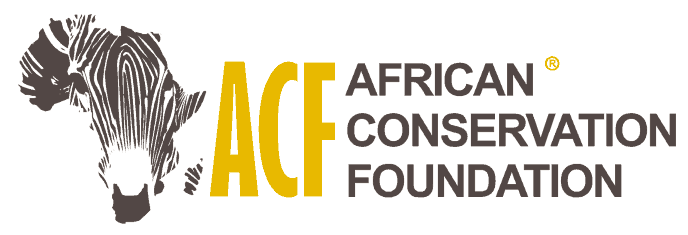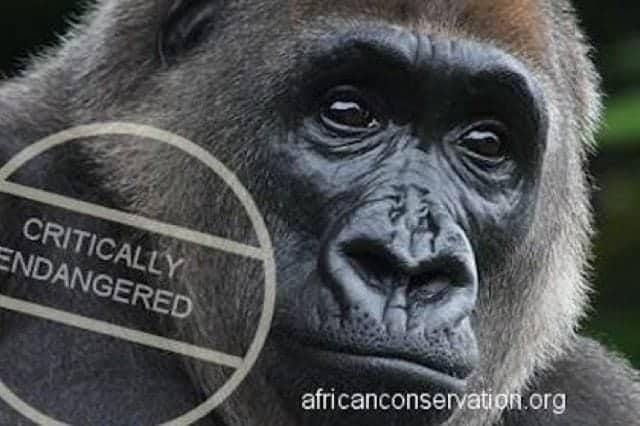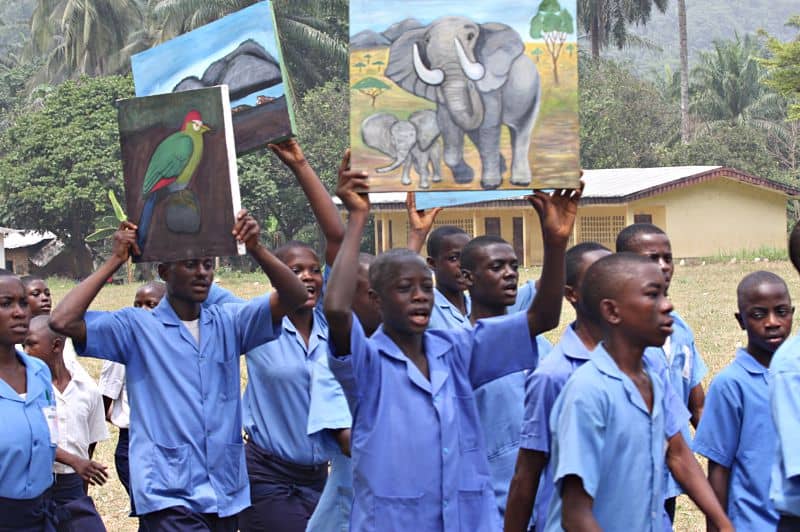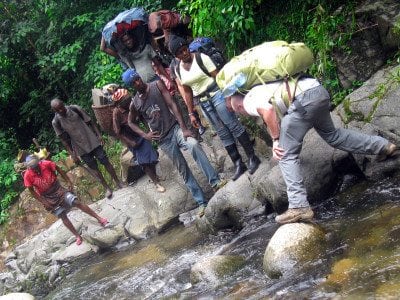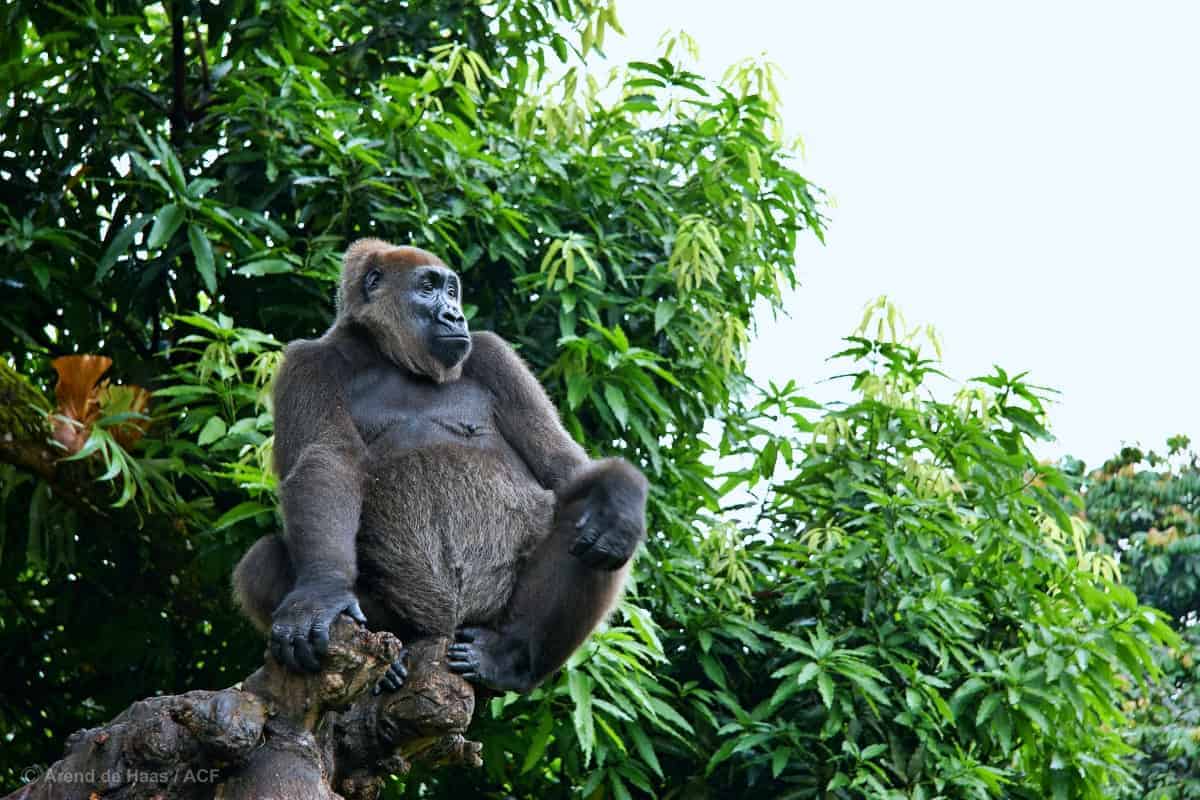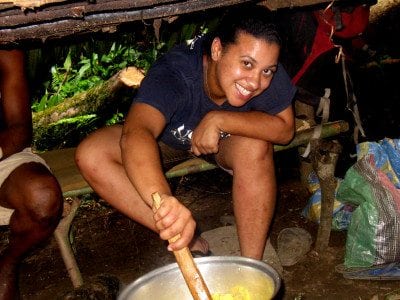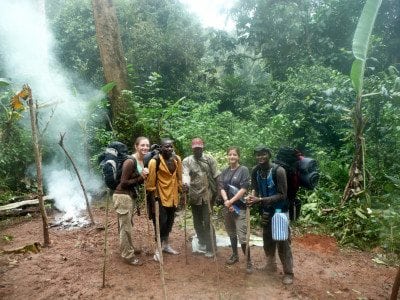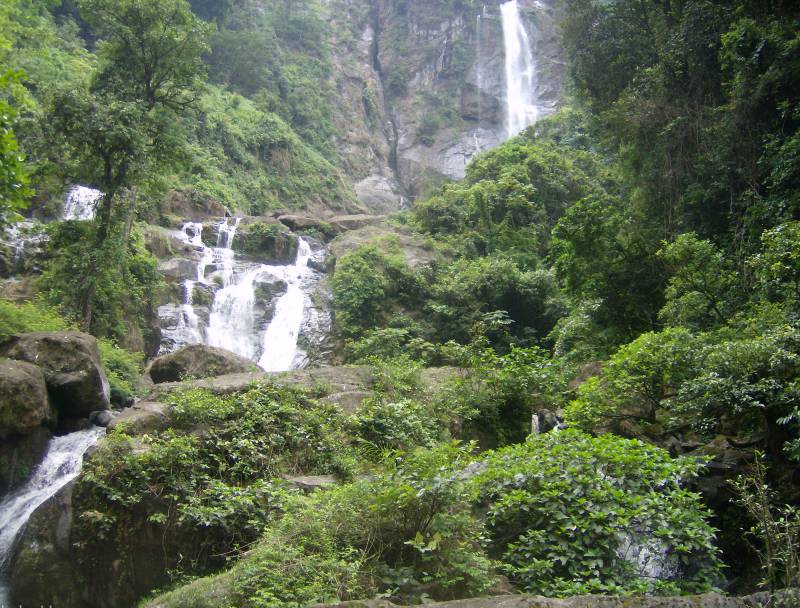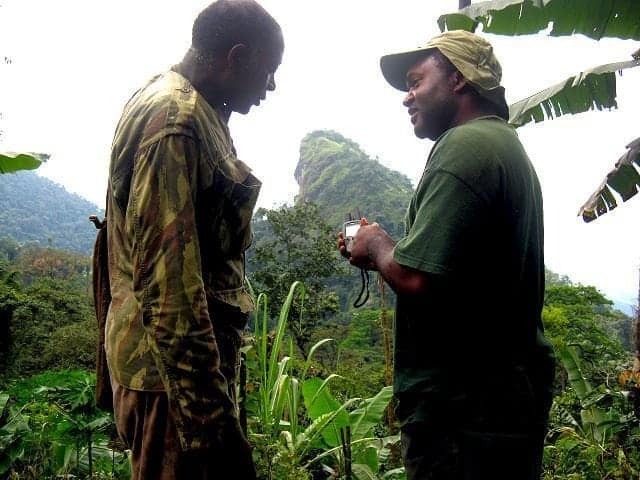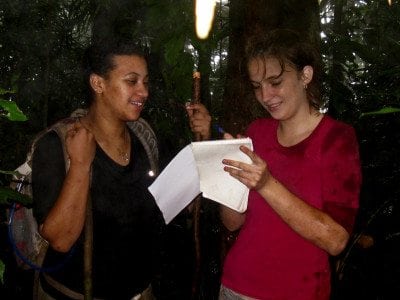Saving Cross River Gorillas and Chimpanzees
Country
Cameroon
Duration
15-90 Days
From
US$1850
Highlights
Important notice: Due to the ongoing Anglophone crisis, we are temporarily unable to accept volunteer applications for this program. Thank you for your understanding and support.
- Helping to conserve Cross River Gorillas and chimpanzees;
- Working with local staff;
- Participating in great apes surveys;
- Checking camera traps;
- Environmental education activities at primary and secondary schools;
- Being immersed in the indigenous communities of the highland rainforest;
- Meeting with local kings, chiefs, teachers and children;
- Visiting Limbe Wildlife Centre;
- and experiencing this unique, authentic African rainforest expedition.
Overview
Volunteer in the Highland Rainforests of South West Cameroon. Spend two or more weeks volunteering on conservation projects saving these great apes from extinction.
South West Cameroon harbours two of the most threatened African great apes: the critically endangered Cross River gorilla – the rarest of the gorilla sub-species with 250-300 individuals left in the wild – and the Nigeria-Cameroon chimpanzee – also the most endangered chimpanzee subspecies in Africa. They are both keystone species in the montane forest ecosystems of the border region of Nigeria and Cameroon.
The Cross River gorilla could become extinct within 10 years, unless we act now.
Volunteering on this conservation project in Cameroon will take you to work on the frontline of conservation, taking part in surveys of the montane rainforests – some of which have never been surveyed before – and in community education and awareness-raising activities.
Project area
The Lebialem Highlands are a six-hour drive from the coastal town of Limbe in the South West Province of Cameroon. The Cross-Sanaga-Bioko Coastal Forests ecoregion supports one of the highest rates of animal species richness in Africa, especially in terms of forest-restricted mammals, birds and butterflies. The Lebialem Highlands of which Bechati-Lebialem forest is part is also part of this eco-region are especially rich in endemic biodiversity species. Over 355 bird species have been recorded, among which 50 species are endemic to the afro-montane highlands and 15 species are globally threatened. The low to mid-level elevation is home to endangered primates as the Drills (Mandrillus leucophaeus) and the Preuss guenon (Cercopithecus preussi).
Photo Gallery
Activities
The expedition will focus on great apes surveys and education and awareness raising activities. Each survey period generally will last two-four weeks (with breaks every three-five days) – the sampling design of which will be established prior to the start of the surveys. Former local hunters have been employed by the project to serve as field guides.
Your life during the surveys will be nomadic, breaking camp each day to move to the next site – with the help of field guides and porters. You’ll cover steep slopes, sometimes making for extreme hiking and trekking, as you follow family groups of gorillas and chimpanzees. You’ll look for animals and nest sites, signs of feeding and habitat use, documenting observations through photography and GPS coordinates. You may encounter other endangered primates and hundreds of bird species and other wildlife.
The project language is English, and you’ll receive field training in scientific survey techniques and GPS tracking and mapping.Education and awareness raising will form a key part of this expedition. Changing the attitudes towards great apes and improving empathetic relationships between children and wildlife is a prerequisite to sustainable co-existence and the protection of apes.
Sightseeing & Exploration
Before or after your stay you can visit places such as the Limbe Wildlife Centre, Limbe Botanical Garden, Bimbia Mangroves, Bomana Waterfall, Old German Lighthouses in Debundscha and on Cape Nachtigal, colonial buildings and history of Buea and Limbe, Crater Lakes, Palm Oil, Tea, Banana and Rubber Plantations.
Field conditions
You will stay in local hostels while in town and in bush camps in the field. The local conditions are very basic and the terrain is very though, with steep slopes. Temperatures and humidity are high. The expedition will involve camping in two man tents. There will be no electricity and no toilets (only bush toilets). Meals will be prepared on an open fire and provided two times a day while in the field.
Costs
2 Weeks: US$1,850
4 Weeks: US$2,550
6 Weeks: US$3,650
8 Weeks: US$4,250
3 Months: US$5,850
Are you interested in staying longer? Please send us an email for more information.
Included
- Transport to and from the airport
- 2 nights accommodation in a hotel in Buea (1 night at arrival/1 night at dept)
- Transport to and from field base
- Local transportation
- Food and water
- Guides and Porters
Excluded
- International Flights
- Medical and Travel Insurance
- Inoculations and Medication
- Visa (can range in price from $100-$120 US).
- Occasional meal out in town (ranging from $5-12)
FAQ
Which qualifications are required?
Expedition Members must be highly motivated and physically fit. Some trekking and climbing experience would be an advantage. The local climate is hot and humid; temperatures are ranging from 20-35°C. It is important that expedition members can work as a team and assist the local staff in the daily tasks.
Which skills will you gain?
Volunteers should expect to gain exposure to current fieldwork and processes and the working methods of small independent NGOs. The focus is to provide volunteers with the opportunity to assist in research projects, great apes surveys and attend workshops and meetings with local communities and schools. Training will be provided in great apes surveys and biodiversity monitoring, use of GPS and navigation tools, data collection, and environmental education.
Why should I have to pay to volunteer?
Volunteers are a key part of the project. Your hard work and enthusiasm are very much needed and appreciated by the local team and communities. However, we don’t have the funds to subsidise volunteers, so we need your contributions to cover the costs of the programme activities. This includes meals, equipment, local staff and transport, program materials, the services of a trained expedition leader, on-site coordination and development of the programme and administrative costs. Your volunteer contribution also helps to create local jobs in an area where there are virtually no paid jobs available – and to create and maintain new reserves to protect the great apes populations.
Will someone meet me at the airport?
Yes, please send your flight itinerary to ACF at least two weeks in advance of the expedition start date. An ACF or ERUDeF staff person or representative will meet you in the public area outside Customs and bring you to your hotel.
What should I do if my flight is delayed?
Please notify ACF as soon as possible and confirm your new arrival times so the expedition leader can arrange your transportation. What should I do if I arrive before the scheduled arrival date? If you choose to spend time in-country before the expedition begins, please plan to meet your team at the designated airport or hotel within the specified arrival window on the first day of the program in order to be transported to the local office and the field sites.
How do volunteers stay involved once back home?
In the last few years, volunteers have expressed a strong desire to stay connected with the project and continue to support local activities once they return home. Sharing the excitement of new insights and perspectives is an important part of your experience. Raising local and international awareness raising for the plight of endangered species is very helpful and we need your help to recruit others to join future expeditions. Volunteers and other interested persons can link to the online Facebook Cross River Gorilla community: http://www.facebook.com/crossrivergorillas
Enquiries
Excited to join this project? Share your preferred dates, interests, and any specific needs with us!
